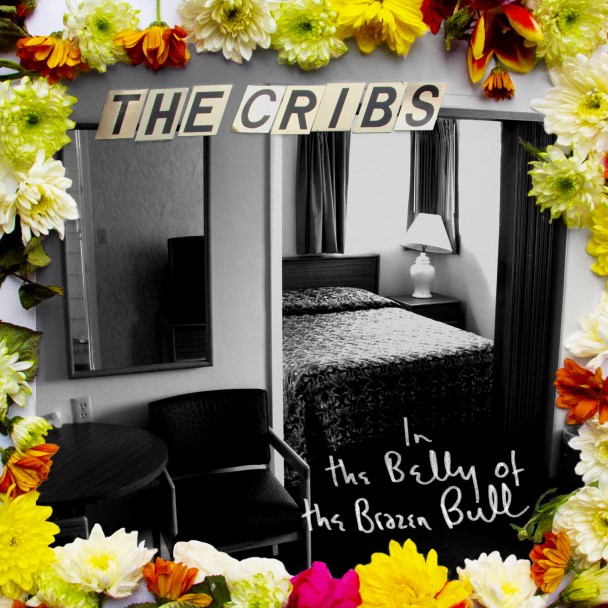It’s been over ten years since the release of Is This It turned The Strokes’ brand of guitar pop into the “next big thing” in England. In the fervor following that album, there was a crop of bands, as is typical of trends like this, that popped up and capitalized on the hype by following a similar template. Atypically of such hype-driven trends though, a surprising amount of bands spawned from this craze have been able to transcend it and find more lasting success with different sounds. Arctic Monkeys have ventured into desert rock territory. The Horrors are now vintage ’80s post-punk. The Cribs haven’t undergone quite the kind of transformation that many of their contemporaries have, but since their decrying of the scene with “Mirror Kissers” and “Hey Scenesters!” it’s been clear that this is also a band that wants to reach for something more.
And they have, bucking expectations by collaborating with everyone from Johnny Marr to Lee Ranaldo while expanding what they can do with their sound. In the Belly of the Brazen Bull, their latest effort, continues this approach. Although Johnny Marr is now out of the band and only one song (“Chi-Town”) resulted from the sessions they undertook with Steve Albini, the album as a whole sounds more indebted to early college rock influences (think the usual suspects – The Replacements, Pavement, etc.) than anything the Cribs have done before. This is both to the album’s benefit and detriment; its best moments come when the Cribs successfully marry their trademark guitar pop to these new influences, such as on “Come On, Be A No One,” “Chi-Town,” and the four-song suite that ends the album, but at its worst the ideas don’t mesh together very well, and things sound a bit discombobulated.
“Jaded Youth” is an example of just how discombobulated the Cribs can get. It goes back and forth between clattering, mid-paced verses that lean towards their new ’90s sound, and a punkier chorus worthy of their most popular material. Then the contrast gets even stranger, slowing down during the bridge and becoming languid for a minute, with bells chiming in the background, before one last go-round of the chorus. It sounds like a band that is full of good ideas, but is unsure of how to put them together properly. Its constituent parts are quite good, but as a whole it’s kind of a mess.
It’s interesting to note another shift the Cribs make on this album, which is the Americanization of their previously distinctively British subject matter. Whether you chalk it up to this album’s recording location or to their influences, the truth is that the accents are steadily disappearing, and the lead single talks about meeting up in Chicago. Barring any personal predilections for American or British accents, this is neither a good nor bad thing; it is merely another aspect of the Cribs that has changed.
For all the changes made on this album though, there are still many things for fans of the old Cribs to like. The band’s good ear for hooks is intact. “I Should Have Helped” might be the best ballad they’ve ever penned. The album ends on its highest note with a seamless but flexible, fluid four-song suite that showcases the Cribs’ theatrical flair while featuring strings, bells, and guitar styles plucked from across a wide range of indie rock influences, from skeletal gothic rock a-la the Cure to sludgy chords a-la early Wipers. It succeeds mightily by doing what the rest of the album fails to do, which is sound cohesive.
Like everything else the Cribs have done, In the Belly of the Brazen Bull is a relatively easy album to like, with sharp melodies and catchy hooks. It’s just held back by a feeling of indecision that permeates tracks whose parts seem to want to go in conflicting directions. Are the Cribs now ’90s indie rock revivalists, or are they still the same band that helped popularize the re-emerging guitar-pop scene in England in the 2000s? Parts of this album answer yes to both questions, and while neither would necessarily be bad, both at the same time make for a record that doesn’t seem to know what to do with itself.

